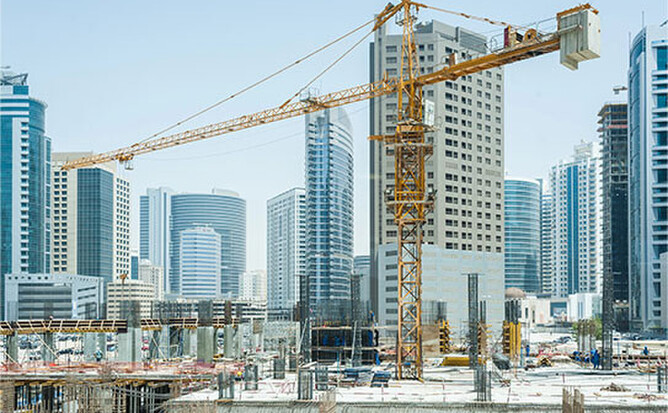Building a hotel involves a wide range of expenses that influence the final budget. Hotel construction cost per square foot varies based on multiple factors, including location, land prices, materials, and labor. Developers, investors, and property owners must assess these costs carefully to create a profitable and efficient project. Every decision, from site selection to construction techniques, affects overall expenses.
Estimating costs accurately helps in financial planning and project feasibility. Skipping this step can lead to unexpected overruns and delays. A breakdown of key cost components, including land acquisition, foundation work, materials, and labor, gives a clearer picture of overall spending. Learn about the main factors that impact construction expenses and how to optimize budgets effectively.
Location Impacting Hotel Construction Cost Estimates
The geographic location of a hotel site influences overall project expenses. Construction in high-cost urban areas requires more investment due to expensive land, strict regulations, and higher labor rates. Luxury hotels in prime locations often demand premium materials and custom designs, increasing the hotel cost per square foot. On the other hand, rural or suburban developments benefit from lower land prices and reduced labor costs, making projects more affordable.
Climate and weather conditions also play a role in cost variations. Hotels in hurricane-prone regions need reinforced structures, while those in colder climates require additional insulation. Regulatory requirements, zoning laws, and permit fees differ by location, adding more expenses in some regions than others. Factoring in these variables helps developers budget accurately and avoid unexpected financial challenges.
Land Acquisition Expenses for Hotel Development Projects
Buying land represents a significant portion of hotel construction budgets. Prices vary based on demand, accessibility, and zoning laws. A well-located site with high foot traffic costs more but offers better revenue potential. Developers often conduct feasibility studies to assess land value, expected returns, and zoning restrictions before making a purchase.
Beyond the sale price, additional expenses like property surveys, environmental assessments, and legal fees increase the total investment. Rezoning a property for hotel use may require further permits and compliance costs. Choosing land with existing infrastructure, such as road access and utilities, helps reduce initial development expenses. Strategic land selection ensures that project costs remain within budget while maximizing the hotel's potential for long-term profitability.
Site Preparation and Foundation Cost Considerations
Before construction begins, developers must clear and prepare the land. Site preparation includes grading, excavation, and removing debris, which impacts the cost of building a hotel per square foot. Uneven terrain or unstable soil conditions require extra work, adding to the budget. Environmental factors like flood zones or protected habitats can also delay projects and increase expenses.
Laying a strong foundation is another key expense. Hotels require deep footings and reinforced concrete to support multiple floors and heavy loads. The type of foundation needed depends on soil quality and building design. Poor soil conditions require deep pilings, while stable ground allows for cost-effective slab foundations. Proper site preparation and foundation work prevent structural issues, ensuring long-term durability.
Structural Material Choices for Budget Optimization
Selecting the right materials impacts overall construction expenses. Concrete, steel, and wood each offer different advantages based on budget, durability, and design preferences. Concrete provides strength and fire resistance but costs more than wood framing. Steel offers flexibility for high-rise hotels but requires skilled labor, increasing installation expenses.
Energy-efficient materials, such as insulated panels and thermal glass, help reduce long-term operational costs. Sourcing materials locally can also lower transportation fees. Developers must balance cost savings with durability to ensure the hotel meets safety and quality standards. Making informed material choices optimizes budgets while maintaining structural integrity and design appeal.
Framing and Roofing Expenses for Hotel Buildings
Framing forms the skeleton of a hotel, determining its shape and stability. Wood framing suits small-scale hotels, while steel and concrete frames work best for larger buildings. The cost of framing depends on material selection, labor rates, and project complexity. Prefabricated framing solutions can speed up construction and reduce waste, saving money.
Roofing choices affect both cost and energy efficiency. Flat roofs offer affordability and ease of maintenance, while sloped roofs provide better drainage and durability. Weather conditions also influence roofing decisions. Hotels in snowy regions need reinforced roofs to handle heavy loads, while those in warm climates benefit from reflective materials that reduce cooling costs. Careful selection of framing and roofing solutions ensures structural strength and long-term efficiency.
Exterior Finishes Affecting Overall Construction Budget
The exterior of a hotel plays a major role in curb appeal and long-term durability. Material choices like brick, stucco, glass, or metal panels impact the hotel cost per square foot. High-end finishes such as glass curtain walls or natural stone increase costs but create a luxurious appearance. More budget-friendly options, including vinyl siding or fiber cement panels, offer durability with a lower price tag.
Weather conditions and maintenance requirements also influence material selection. Hotels in coastal regions require corrosion-resistant materials, while those in colder climates need finishes that withstand freeze-thaw cycles. The cost of labor for exterior finishing depends on material complexity and installation techniques. Investing in high-quality exterior finishes enhances a hotel's aesthetic appeal, reduces maintenance needs, and improves overall energy efficiency.
Interior Finishes Determining Hotel Quality Standards
Interior design elements define the guest experience and influence operational costs. Flooring, wall coverings, fixtures, and furniture determine both aesthetics and durability. High-traffic areas require durable materials such as porcelain tiles, luxury vinyl, or commercial-grade carpet. Upscale hotels invest in premium materials like marble and hardwood to create a refined atmosphere, increasing the cost of building a hotel per square foot.
Customization also affects the budget. Standardized designs with prefabricated elements reduce costs, while custom-built features drive up expenses. Lighting, soundproofing, and decorative accents enhance guest comfort but require careful planning to balance cost and functionality. A well-planned interior finish strategy improves hotel appeal while staying within budget constraints.
Mechanical Systems Costs for HVAC and Plumbing Needs
Heating, ventilation, and air conditioning systems are significant expenses in hotel construction. The size of the building, climate, and energy efficiency standards influence system requirements. High-rise hotels need advanced HVAC solutions, such as central chillers or VRF (Variable Refrigerant Flow) systems, which increase costs. Smaller hotels may opt for packaged rooftop units for a more affordable solution.
Plumbing systems must support guest rooms, kitchens, laundry facilities, and pools. The number of floors, water pressure requirements, and fixture selections determine costs. Hotels with luxury spa facilities or large-scale dining operations need advanced plumbing systems, driving up installation expenses. Choosing energy-efficient HVAC and plumbing systems reduces long-term utility costs and enhances guest comfort.
Electrical and Lighting System Expenses in Hotels
Electrical infrastructure is a major factor in construction budgets. Wiring, circuit panels, and emergency backup systems must support all hotel operations, including lighting, security, and guest room technology. Hotels with high-end automation, smart controls, and advanced security features require more extensive electrical installations, raising the hotel cost per square foot.
Lighting design affects both aesthetics and energy efficiency. LED fixtures and motion-sensor lighting reduce power consumption while maintaining a welcoming ambiance. Outdoor lighting for signage, parking areas, and landscape design adds to installation expenses. Hotels that incorporate sustainable lighting solutions benefit from lower operational costs while enhancing the guest experience.
Elevators and Accessibility Features Cost Breakdown
Multi-story hotels require elevators for guest convenience and compliance with accessibility regulations. Elevator costs depend on the number of floors, speed, and capacity. Hydraulic elevators suit low-rise buildings, while high-speed traction elevators serve taller hotels more efficiently. Luxury hotels may include glass elevators or advanced control systems, increasing installation costs.
Accessibility features such as ramps, automated doors, and ADA-compliant bathrooms ensure hotels meet legal standards. Wider hallways, wheelchair-accessible rooms, and specialized signage add to construction expenses. Integrating these features from the planning stage reduces retrofitting costs and ensures compliance with local and federal regulations. Investing in accessibility solutions improves guest satisfaction and expands the potential customer base.
Parking Structures and Landscaping Budget Considerations
Parking facilities impact overall construction expenses based on design, capacity, and material choices. Hotels with limited space often opt for multi-level parking structures, which increase the hotel cost per square foot due to structural requirements. Open-air parking lots offer a lower-cost alternative but require durable paving materials and proper drainage systems.
Landscaping plays a role in enhancing hotel aesthetics and guest experience. High-end hotels invest in manicured gardens, water features, and lighting installations, increasing costs. Budget-conscious projects use low-maintenance greenery and drought-resistant plants to reduce upkeep. Walkways, seating areas, and outdoor recreational spaces also add to expenses but improve property appeal. Balancing functionality with cost-effective landscaping solutions ensures an inviting environment while staying within budget.
Permitting and Compliance Costs for Hotel Regulations
Every hotel construction project requires permits and regulatory approvals. Fees vary by location and cover zoning compliance, environmental impact assessments, fire safety codes, and accessibility requirements. Failing to secure proper permits leads to costly delays and legal issues. Building in areas with strict regulations increases approval timelines and associated expenses.
Compliance with health and safety standards, including fire suppression systems, emergency exits, and sanitation guidelines, adds to the cost of building a hotel per square foot. Hotels with food service areas or pools face additional inspections and licensing fees. Working with professionals who understand local building codes streamlines the approval process and helps avoid unexpected costs.
Labor Costs for Skilled and General Construction Work
Skilled labor represents a significant portion of hotel construction expenses. Engineers, architects, electricians, plumbers, and HVAC technicians contribute to the final budget. High-demand markets and specialized expertise drive up wages, affecting overall project costs. Labor shortages or unionized workforces may further impact expenses.
General laborers handle foundational tasks such as site preparation, framing, and material transport. Wages for these roles vary by location and project scale. Hotels requiring intricate architectural details, custom millwork, or high-tech installations demand more skilled labor, increasing the hotel cost per square foot. Efficient workforce planning helps manage expenses while maintaining construction quality.
Luxury Versus Economy Hotel Construction Cost Differences
Luxury hotels require premium materials, advanced technology, and high-end amenities, significantly increasing construction costs. Marble flooring, custom furniture, and intricate architectural details drive up expenses. Smart automation, soundproofing, and climate control systems further add to the budget. Larger room sizes, upscale restaurants, and spa facilities require additional space and specialized installations.
Economy hotels prioritize cost-efficient construction with simpler layouts and standardized materials. Prefabricated elements, durable yet affordable finishes, and energy-efficient systems help reduce costs. While luxury properties focus on exclusivity and experience, economy hotels emphasize functionality and affordability. The gap in costs of building a hotel per square foot depends on design complexity, guest expectations, and brand positioning.
Project Management and Contingency Budget Planning
Successful hotel construction requires experienced project management to oversee timelines, budgets, and coordination between trades. A dedicated team ensures that materials arrive on schedule, contractors meet deadlines, and regulatory requirements are followed. Delays in any phase lead to higher expenses, making efficient management critical to controlling costs.
A contingency budget accounts for unforeseen expenses such as material shortages, weather-related delays, or design modifications. Construction projects often encounter unexpected costs, and setting aside a financial buffer prevents disruptions. Proper planning reduces financial risks and ensures smooth project completion without compromising quality.
Build with Expert Hotel Builders in New York – PE Builders
When you need Hotel Builders in New York who deliver exceptional craftsmanship, we bring your vision to life with precision and expertise. Our team designs and constructs stunning, high-quality hotels that impress guests and enhance your brand. Every detail, from modern aesthetics to durable structures, meets the highest industry standards. As trusted Hotel Construction Contractors in NY, we create dynamic, functional spaces that drive business success.
Our commitment to high standards and modern techniques ensures every project is completed on time and within financial plans. PE Builders transforms concepts into reality, delivering excellence in every build.

